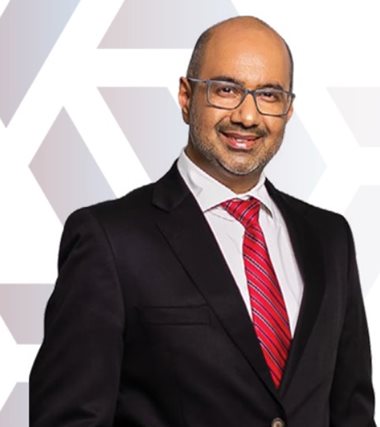
Top stories





Marketing & MediaAds are coming to AI. Does that really have to be such a bad thing?
Ilayaraja Subramanian 8 hours

More news


















Yet it was encouraging to see a few healthcare touchpoints worked into his address. But more than that, the full budget report illustrates continued budgetary support for government's health policy direction. Godongwana touched on essential points poignant in our nation's struggle against a severely constrained healthcare sector.
We all know public healthcare has been struggling to keep up with infrastructure decay, capacity issues and skills shortages. It is optimistic that this fund allocation will help address service backlogs and alleviate critical funding pressures in healthcare personnel, medicine, laboratory services, medical supplies and other vital goods and services.
Though vacant posts in noncritical areas will not be filled in most cases, government intends to recruit and retain personnel in key areas such as healthcare, education and peace and security, mainly through the allocation of additional funding.
An amount of R2.2bn over the medium term is allocated to the direct national health insurance grant for provincial health departments to the contract health professionals and healthcare services including primary healthcare doctors, oncology services and mental-health services.
The department also manages the national health insurance indirect grant, which has three components and a budget of R6.9bn over the medium term:
I'm pleased to see the additional commitment to help provinces deal with the accumulated backlog in core health services such as surgery, oncology, antiretroviral treatment and tuberculosis screening and treatment that resulted from disruptions to routine healthcare services due to the pandemic.
The Budget Review shows that healthcare functions have been allocated an additional R23.4bn over the next four years. That is R7.5bn in 2023/24, R7.8bn in 2024/25 and R8.1bn in 2025/26. However, the backlog and shortfall that has marginalised so many South Africans remains. So, what about the National Health Insurance (NHI) elephant in the room?
Last year I commented that the minister never mentioned the NHI in the 2022 budget address. This year the minister followed the same brief, though how could we blame him given the prominence of the energy crisis? In the detailed estimates of the national expenditure released alongside the budget speech, the document mentions that the NHI sub-programmes will increasingly focus on evolving health-financing functions such as user and provider management, healthcare benefits and provider payment, digital health information, and risk identification and fraud management.
South Africa: Health Committee Briefed by Parliamentary Legal Service and State Law Advisors on National Health Insurance (NHI) Bill @Parliament_Ug #Africa #SouthAfrica #Health #HealthInsurance #Bill #Barliament #Law
— APO Group English (@APO_source) March 15, 2023
Read more: https://t.co/fuGHSDs1MD
Revitalisation of SA's health infrastructure with its shortcomings is the aim of the Hospital Systems programme. A key objective of the programme includes improving the financing and delivery of healthcare infrastructure by March 2026 by constructing or revitalising 58 primary healthcare facilities, constructing or revitalising 50 hospitals, and maintaining, repairing and/or refurbishing 600 public-health facilities.
To this end, the department plans to invest a projected R26.9bn primarily for health-facility revitalisation, which includes the construction of the 488-bed Limpopo Central Hospital in Polokwane.
This public-private partnership (PPP) project will establish the first central hospital in the province and form part of the academic health complex attached to the University of Limpopo's medical school. The minister announced that the project is shovel ready and that construction of the hospital will finally begin in March this year.
The NHI debate seems to have publicly entered a bit of a lull. However, the immediate needs of national healthcare interests seem to be better served with hospitals and skills, so we should applaud the minister's healthcare priorities.
Even though the energy crisis impacts our nation significantly, I believe the progress towards achieving universal health coverage needs to remain on track. I am hopeful that this can be done given this year's budget address. However, the proof will lie in the actions we see over the course of this new financial year.